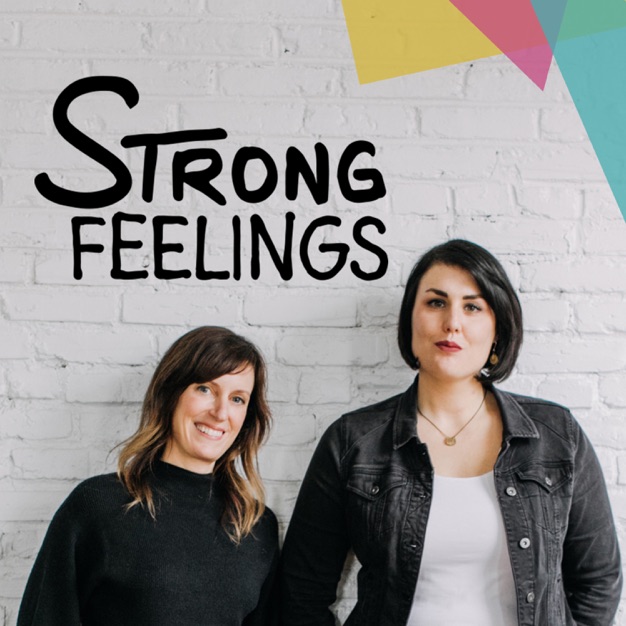
Strong Feelings
Katel LeDû & Sara Wachter-Boettcher
Best friends and business partners Katel and Sara let it all out in a weekly show about work, friendship, and feminism. Plus, intimate conversations with authors, artists, activists, and entrepreneurs about how they got where they are, what they learned in the process, and what they do to find joy. Because life’s too short to bottle things up.
- 56 minutes 13 secondsPer My Last Email: My review sucked—now what?
Strong Feelings is ending—but we’re excited to bring you the first episode of our new show, “Per My Last Email.” If you like what you hear, make sure you subscribe on Apple, Spotify, Amazon, or Stitcher, or wherever you get your podcasts—or visit the show at PMLEshow.com.
—
You deserve an equitable, actionable, and thoughtful performance review. So how do you move forward when you get…something else entirely?
That’s what we’re tackling in our very first episode. Listen in as Jen and Sara coach people through big dilemmas—and even bigger feelings—about the wild and weird world of performance reviews. You’ll leave with new tools to help you rebound after unfair or unexpected feedback…or at least some good stories for the group chat.
Links:
Got a work situation eating away at you? Send it to us! Submit your dilemma at PMLEshow.com.13 April 2023, 4:00 am - 2 minutes 38 secondsIntroducing: Per My Last Email
Hey, Strong Feelings fans! We’ve decided to retire the show…so we can focus on a brand-new one! It’s called Per My Last Email, and we cannot wait for you to hear it. The first episode comes out April 13, so if you like this trailer, make sure to subscribe now on Apple, Spotify, Amazon, or Stitcher—or visit PMLEshow.com to get the details.
Here’s what it’s all about! Enjoy! —Sara
–
How can I get my boss to advocate for me and have my back? Should I disclose my disability? Why can’t I juggle all of this work? Work raises a lot of questions—and too many of them get stuck in our heads, rattling around until we feel overwhelmed and unqualified.
No more. Join hosts Sara Wachter-Boettcher and Jen Dionisio for this brand-new podcast designed to help you work through all the big feelings and confusing situations that come up at work.
Each episode, they’ll share real-life dilemmas listeners are struggling with—from how to respond to passive-aggressive emails to what to do when your boss gives you truly terrible feedback. Then they’ll share the tools they use in their coaching sessions to help listeners get through whatever work throws their way.
Per My Last Email starts April 13—so subscribe now wherever you listen to podcasts. Because work gets weird. Sara and Jen can’t wait to help you get through it.
--
Theme music: “(I’m A) Modern Woman” by Maria T
Producer: Emily Duncan
Created by: Active Voice
3 April 2023, 5:41 pm - 43 minutes 29 secondsToxic Gratitude
We’ve spent the past few months deep in a series on pandemic clarity—hearing intimate stories about people whose relationships to work have changed dramatically over the past two years. But the more we listened to others’ stories, the more we realized…it was time to tell our own.
In today’s episode, Sara is joined by Active Voice operations manager and Strong Feelings producer, Emily Duncan, to talk about their own reckonings with work. From the founding of Active Voice during the pandemic to confronting exploitation in the music industry, they offer glimpses into the reality of being leadership works-in-progress.
What we do is really tech and UX and UI focused. But I do think that there's a ton of overlap in multiple industries. And I see myself as having the ability to take some of what I've been learning here and bring it back, take that fire from the Greek gods and bring it back down and share it. If I can come and help educate even just one person on their rights and what they deserve, I think that it will have all been worth it.
—Emily Duncan, Ops Manager at Active Voice
Links:
2 June 2022, 4:00 am - 40 minutes 14 secondsFix Systems, Not Women
What would you do if you found out you were being paid $25,000 less than your peers, and that while they were allowed to work from home, you were expected to show up in person?
Kate Rotondo had both happen while working at one of the largest and best-known tech companies in the world, and the experience profoundly changed her relationship to work. Kate joins Sara to tell her story of institutional betrayal—and how it took her from working in code to working in clay.
I had to let go of the responsibility of providing for my family. I had to let myself become expensive. I also had to shift my sense of what's important to me from getting my career back and earning that money to reclaiming my time—to becoming rich in something else, if it wasn't going to be career accolades, and it wasn't going to be respect at my job, and it wasn't going to be the money that came from that. I kind of had to shift and think, 'What I'm asking for here at work is to have the same lifestyle as my colleagues.' My colleagues wake up in the morning. They don't drive three hours to get to work…So how do I get that? How do I get the quality of life that the men around me have? How do I regain a sense of entitlement to that time? That I'm entitled to have free time. I'm entitled to have passions.
—Kate Rotondo, founder, Equal Clay
Links:
19 May 2022, 4:00 am - 36 minutes 40 secondsThe Four-Day Workweek
Joann Lee Wagner used to feel pretty guilty for taking breaks—until her organization decided to experiment with a new way of working: the four-day workweek. In the process, Joann had to do more than change her calendar. She had to rethink how she thought about work itself.
Today we share the story of one person’s, and one organization's, experience trying out a four-day week: Joann Lee Wagner, the VP of people operations at Common Future. They tested a four-day week in 2020, and have since made it permanent. Listen in as Joann walks through how their experiment came together, what they learned in the process, and how it changed Joann forever.
I think of my grandmother who was an entrepreneur in San Francisco in Fisherman's Wharf, selling her candles and working so hard to make a living for her family and the health challenges that came after that. I think about how she wouldn't want me to be in a place of such constant stress and hardship, where I'm working myself to the bone just to live now. I think that she would really have wanted something else for me. And so it took a moment of reflection to really think about, "Where is that coming from?" in order to be able to even come into work in a four-day workweek context. Because at the end of the day, we are really challenging the assumptions around work that we as organizations carry, but also we as individuals.
—Joann Lee Wagner, VP of people operations at Common Future
Links:
12 May 2022, 11:15 am - 32 minutes 27 secondsFuture Julie
A year into the pandemic, Julie Threlkeld met with a leadership coach to talk about building her confidence in stakeholder meetings. And she left deciding what she actually needed was to retire early.
Today on the show, Julie shares her story of leaving the tech workforce at age 56—and how keeping Future Julie in mind helped her get there.
Sara also chats with Eugenié George, a financial wellness specialist and educator who specializes in helping women of color understand their money and their ancestry. She shares tips on how to manage your money to align with your values and financial goals.
When I started working for myself, I had this vision of myself that I always called Future Julie, and Future Julie is the older version of myself…the person who's probably not going to get hired as a freelancer after a certain age, because that's just the reality. Or because she's too sick of trying to keep up with technology, or she's literally sick with something, or she just has other things to do with her life than meet other people's goals and trade your time for money. And that was always the person I was working toward supporting.
—Julie Threlkeld
Links:
28 April 2022, 4:00 am - 36 minutes 1 secondThe Thunderdome of American Capitalism
Who are you beyond the bio on your LinkedIn profile? In today’s episode, we tell the story of Alison Taylor—a designer and strategist who went to great lengths to find that out.
After being hospitalized due to extreme burnout and a toxic workplace, Alison knew that she needed a change. So she started a journey of healing and self-discovery spanning five years and three countries. And that’s just the beginning.
I just want to be me. I don't want to be "Alison: business designer/strategist, helping creative freelancers, early-stage startups, and folks design sustainable, unique products and systems that scale sustainably." I don't want to just be that. I'm so much more than that. And I felt like I was losing who I was….And then I realized, "Yo, you can unsubscribe from all of this.” Who's making up these rules? Everything is made up. And you don't have to subscribe to any of this. You can decide to be the person that you are, you can decide to use your voice.
—Alison Taylor, founder, Augur
Links:
21 April 2022, 4:00 am - 47 minutes 22 secondsIntroducing: Pandemic Clarity
We’ve all heard about pandemic burnout. But that’s not the whole story. This season on Strong Feelings, we’re focusing on pandemic clarity: how the past two years have changed people’s relationships to work…for good.
In February, we gathered detailed survey responses from 236 people working in tech and design. Our central question: How has your relationship to work changed in the past two years? The results of our research were just released in a new report called “Work needs to stay in its place”—available for download now at activevoicehq.com/research.
We found that the pandemic didn’t just upend people’s daily routines. For many, it triggered a dramatic rethinking of their priorities and values at work. So that’s what we’re talking about this season. To kick things off, Sara sits down with researcher Dr. Urszula Pruchniewska, who worked on the report, to discuss some of their findings.
I think the pandemic set the stage for us being able to talk about stuff that we might have been feeling for a really long time but we didn't share with each other, or even share with ourselves. The idea of work being your passion and doing what you love is so prevalent throughout society that it's weird to say, "No. Work is just work." Especially in design and tech fields…where we are taught to have so much personal feelings around our work.
—Dr. Urszula Pruchniewska, research consultant
Over the next two months, we’ll be sharing intimate stories with people who’ve experienced major changes to their mindsets, motivations, and relationships to work. You don’t want to miss it.
Links:
This episode features clips from
14 April 2022, 4:00 am - 32 minutes 53 secondsSolidarity in Action with Nora Keller
Everyone deserves to be treated with dignity, equity, and respect at work. The best way to do that? Unionize! Tech worker and organizer Nora Keller tells us how to get started.
Nora Keller is a product manager at the New York Times and an organizer for the Times Tech Guild. The unit was formed earlier this year and is one in a growing movement of new tech-worker unions fighting for equity, transparency, and a seat at the table.
Every worker, no matter where they work, or what they do, deserves an equitable, accountable, and transparent workplace. The working class is going to find its power through solidarity. It's not going to find it through division. And the truth is that the average tech worker has a lot more in common with a healthcare worker or a teacher than they do with the Jeff Bezoses of the world.
—Nora Keller, organizer, Times Tech Guild
We talk about:
- How Nora got involved in the unionizing effort
- What the members of the Times Tech Guild are fighting to change in their workplace
- How a union is formed and the process to getting it recognized
- How to spot and prepare for common union-busting tactics
- The risks of organizing and how the danger is often greater for members of marginalized or underrepresented groups
Plus: in our last You’ve Got This of the year, Sara calls us to keep questioning our defaults in the workplace. How have your expectations of work changed this year, and what do you want to stop tolerating in 2022? For all this and more, check out https://www.activevoicehq.com/podcast.
Links:
16 December 2021, 4:00 am - 50 minutes 53 secondsA Soft Place to Practice with Danielle Barnes
Design and tech events need more diverse lineups. But getting on stage? That's a big hurdle. Women Talk Design CEO Danielle Barnes joins us to talk about how to get over it by giving yourself “a soft place to practice.”
Women Talk Design is on a mission to see a more diverse group of speakers onstage, and a more diverse group of leaders thriving in their workplaces. CEO Danielle Barnes shares her story of joining and building the organization from a speaker directory to a set of flagship programs and events designed to build a safe, welcoming community and elevate the voices of women and non-binary people.
One of the things that drives me to do this work is that I truly believe everyone should be able to see someone onstage—or leading a meeting, or in the books that they're reading—that looks like them, that has similar experiences to them, and think that that can be them as well.
—Danielle Barnes, CEO, Women Talk Design
We talk about:
- The evolution of Women Talk Design and how Danielle transitioned from volunteer to CEO
- The power and necessity of public speaking and finding your voice
- How to find and hone your “why”
- The importance of seeing yourself represented onstage and in media
- The myth of “waiting until you’re ready”
Plus: in this week’s You’ve Got This, Sara offers tips for how to lower the stakes for yourself while practicing a new skill—whether speaking, listening, or anything else. Get more tools at https://www.activevoicehq.com/podcast.
Links:
- Danielle Barnes
- Women Talk Design
- Present Yourself Intensive (starting January 12)
- Active Voice
2 December 2021, 4:00 am - 41 minutes 7 secondsRemaking the World with Samira Rajabi
The pandemic broke our understanding of the world. How do we put the pieces together again? Samira Rajabi joins us to point the way—and it all starts with getting comfortable “sitting in the shit” with each other.
Samira Rajabi is a researcher, writer, and assistant professor of media studies at the University of Colorado. Her work focuses on the intersection of trauma, social media, disability studies, and feminist theory, and her book, All My Friends Live in My Computer: Tactical Media, Trauma and Meaning Making, came out earlier this year.
I think this impulse to compare comes from this sense that what you're going through is not legible to other people. So we often sort of demean our own suffering because we don't think that it's worthy in the eyes of society, or culture, or our peer group. I think the way to cope with that is to listen better. So rather than being in a space, where it's like, "Oh, you say you're suffering? Well, listen to my suffering," it's, "How might I hear what you're saying with a recognition of who you are, and where you're coming from, and what you need in the moment, and then also offer my testimony about where I am, and what I need, and who I am in the moment?"
—Samira Rajabi, author, All My Friends Live in My Computer
We talk about:
- How Samira’s desire to understand her own experiences with trauma led her to working at the intersection of gender, disability, and media studies
- How a brain tumor diagnosis and treatment led Samira to find online community, and how that community helped her process grief and trauma
- Why comparing trauma is futile, and how to “sit in the shit” with the people in our lives instead
- The politics of trauma and traumatic experiences, and how power plays a role in who gets access to care
- What ambiguous grief is and why it matters
Plus: in this week’s You’ve Got This, Sara offers ideas for how to listen more deeply and stop trying to “fix” things for the people in our lives. For more tools and practice tips for staying present to others’ pain, head over to https://www.activevoicehq.com/podcast.
Links:
18 November 2021, 4:00 am - More Episodes? Get the App
- N/A
- en-us
Your feedback is valuable to us. Should you encounter any bugs, glitches, lack of functionality or other problems, please email us on [email protected] or join Moon.FM Telegram Group where you can talk directly to the dev team who are happy to answer any queries.
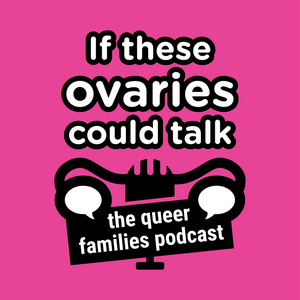 If These Ovaries Could Talk
If These Ovaries Could Talk
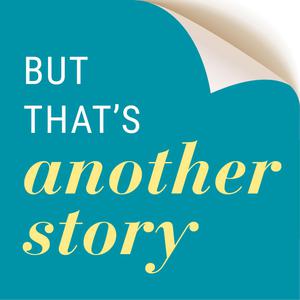 But That's Another Story
But That's Another Story
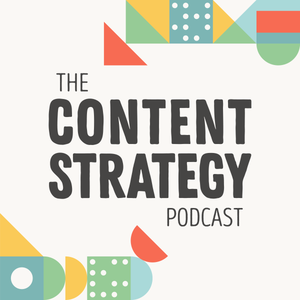 The Content Strategy Podcast
The Content Strategy Podcast
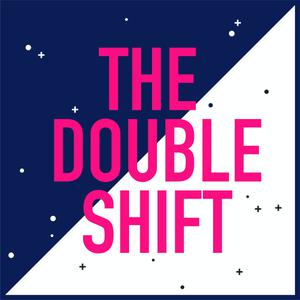 The Double Shift
The Double Shift
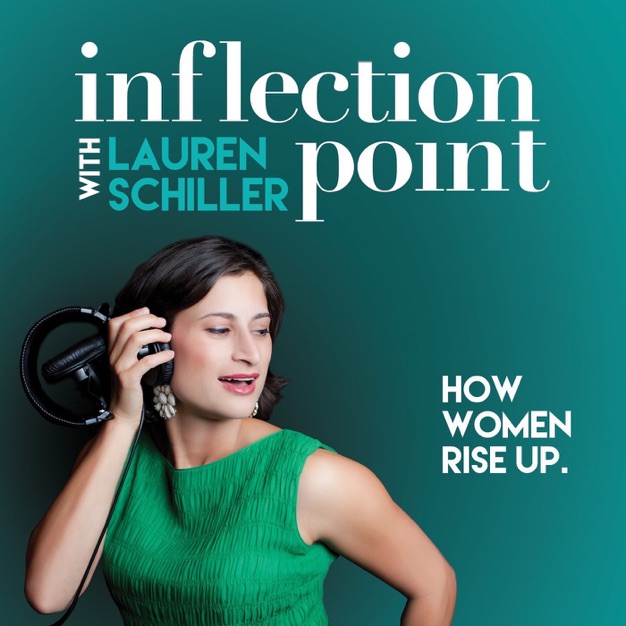 Inflection Point with Lauren Schiller
Inflection Point with Lauren Schiller